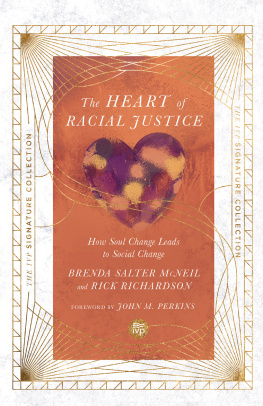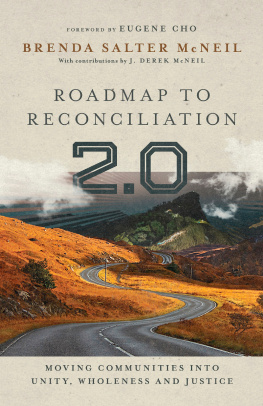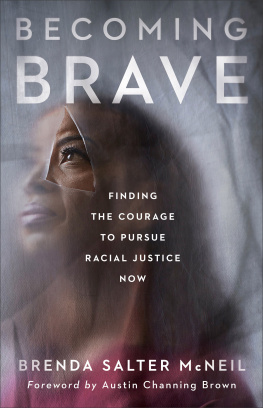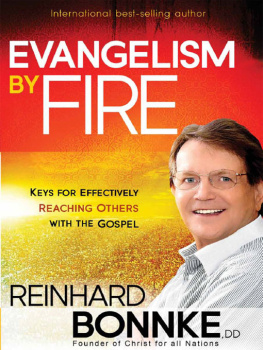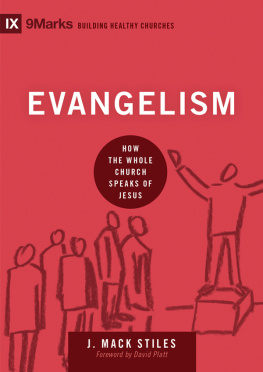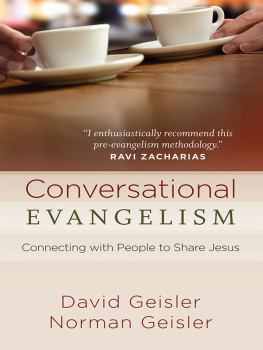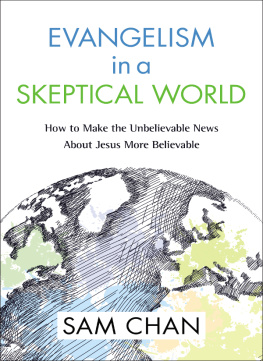About the Author
Brenda Salter McNeil
Brenda Salter McNeil is an ordained Christian minister, teacher, evangelist and frequent speaker at churches, colleges and conferences nationwide. She is the founder and principal of Salter McNeil & Associates, LLC, a reconciliation training, consulting and leadership development company that serves academic, religious and civic organizations.
She previously served on the staff of InterVarsity Christian Fellowship for thirteen years, where she prepared and directed training programs and seminars designed to empower participants to effectively engage in racial reconcilement and crosscultural ministry.
She holds degrees from Fuller Theological Seminary and Rutgers. Her D.Min. degree is from Eastern Baptist Theological Seminary (now Palmer Theological Seminary). She has written articles for The African American Pulpit, Christian Parenting Today, Christian Ethics Today, International Urban Associates Newsletter and PRISM.
The Heart of Racial Justice: How Soul Change Leads to Social Change
Racial and ethnic hostility is one of the most pervasive problems the church faces. It hinders our effectiveness as one body of believers. It damages our ability to witness to and serve seekers.
Why won't this problem just go away?
Because it is a spiritual battle.
What should our response be in a world torn apart by prejudice, hatred and fear?
We must employ spiritual weapons--prayer, repentance, forgiveness.
In this book Brenda Salter McNeil and Rick Richardson reveal a new model of racial reconciliation, social justice and spiritual healing that creates both individual and community transformation. Read this book if you want to learn how to
- use your faith as a force for change, not as a smoke-screen for self-protection
- embrace your true self and renounce false racial identities
- receive and extend forgiveness as an act of racial reconciliation
- experience personal transformation through the healing of painful racial memories
- engage in social action by developing ongoing cross-cultural partnerships
Are you ready to find out how soul change leads to social change?
CONTENTS
To my children,
Omari Immanuel McNeil and Mia Imani McNeil.
May you come to fully embrace the greatest story ever told.
And to my husband,
J. Derek McNeil,
who makes everything I do better.
FOREWORD
J esus prayed that we all might be one, but we are anything but one. There is no way to argue with the statement made by Martin Luther King Jr. that, in America, 11:00 on Sunday morning is the most segregated hour of the week.
There are reasons for the separateness of Christians. Differences in race, social class, economic status, education and cultural identity tend to keep us from interacting with each other. Most of us live out what one sociologist called consciousness of kind. In simple language, that means we feel comfortable with people whom we find to be like ourselves. The experts in the field of church growth make it clear that the churches that grow the fastest are those which are homogeneous units. In popular discussions, that comes down to the truism that birds of a feather flock togetherand this holds true for Christians as well as for the rest of the population. It holds true in spite of Jesus prayer that we would all be one.
In the face of this social reality stands the Day of Pentecost. On that day, people from various nations, different socioeconomic backgrounds and diverse ethnic groups came together and, under an outpouring of the Holy Spirit, became one.
Just a little more than a hundred years ago, a historical event occurred in a small clapboard building in Azusa, California, when there was another outpouring of the Holy Spirit on Christians. Again, various kinds of people became one. Harvard scholar Harvey Cox points out in his book Fire from Heaven that what characterized this latter movement of the Spirit was not so much the speaking in tongues commonly associated with the Pentecostal movement, but rather the unity of the variety of worshipers at that gathering. Hispanics, blacks, whites, Asians, rich, poor, uneducated and sophisticatedall came together and became one.
The Los Angeles newspapers gave extensive coverage to the protracted meetings in that little building. What fascinated the reporters was that people who ordinarily would have had nothing to do with each other were, under the spiritual dynamism of Pentecostal prayer, hugging each other and worshiping God, seemingly without any awareness of the social barriers that hitherto had divided them. It is not surprising that the Pentecostal movement has grown to more than 500 million worldwide. People are thirsty for that which will enable them to sing in perfect harmony.
Today, while more liberal mainline denominational churches pass resolutions that decry racial segregation, they remain, for the most part, decidedly segregated. On the other hand, Pentecostal churches, which are much less inclined to address social issues, tend to have the most diverse congregations in America. Many of us who are not Pentecostal suffer a certain amount of guilt when we observe this. We consider the segregation of our own congregations and want to know what we can do about it.
When it comes to speaking in tongues, its not that we are opposed to the practice. Its just that it is not part of our regular worship. We seem to be oriented to other ways of experiencing the fullness of the Holy Spirit in our lives. Many of us are taking spiritual formation courses and finding that we yearn to embrace long-neglected practices such as those taught by St. Ignatius.
It is because some of us have so much to learn about receiving that charisma of God which our Pentecostal sisters and brothers seem to embrace so effortlessly that this book is necessary. Brenda Salter McNeil explains the steps we can take to help us cross the sociocultural barriers that too often separate Christians and keep us from living out the biblical mandate to love one another.
Utilizing the scriptural account of the encounter between Jesus and the Samaritan woman at the well, McNeil outlines the ways in which the Lord of history reached across social barriers to establish spiritual connections with a woman who not only hailed from a race the Jews had scorned but who was living a life that made her a moral outcast. McNeil helps us learn from the ultimate teacher how to take the initiative in connecting with those who differ from us. She reintroduces us to the One who thought it not robbery to be equal with God, emptied himself of power and took on the role of a powerless servant (see Philippians 2:5-10) in his ministry of reconciliation.
Using her own story, Brenda Salter McNeil helps us to understand how an African American woman feels when persons like myself make wellintentioned but fumbling efforts to cross the lines of gender and race out of a sense of obligation stemming from guilt. McNeil does not condemn but instead endeavors to help us understand the feelings and motivations behind our actions, and then to make the right moves toward achieving that unity in Christ which expresses the church at its best.
In the midst of all that she writes, McNeil leaves no doubt that underlying the crosscultural sensitizing that she promotes is the conviction that unless persons are surrendered to Christ as their Lord and Savior, their efforts toward reconciliation within Christendom will not be real.
The Bible refers to the church as Gods showpiece. This means that we are to be a living demonstration in time and space of what God intends for all of humanity in this world, and a foretaste of what heaven will be like. If we Christians are to live up to that calling, we must learn through Scripture and with empowerment from on high how to be an answer to Jesus prayer that we all might be one.


